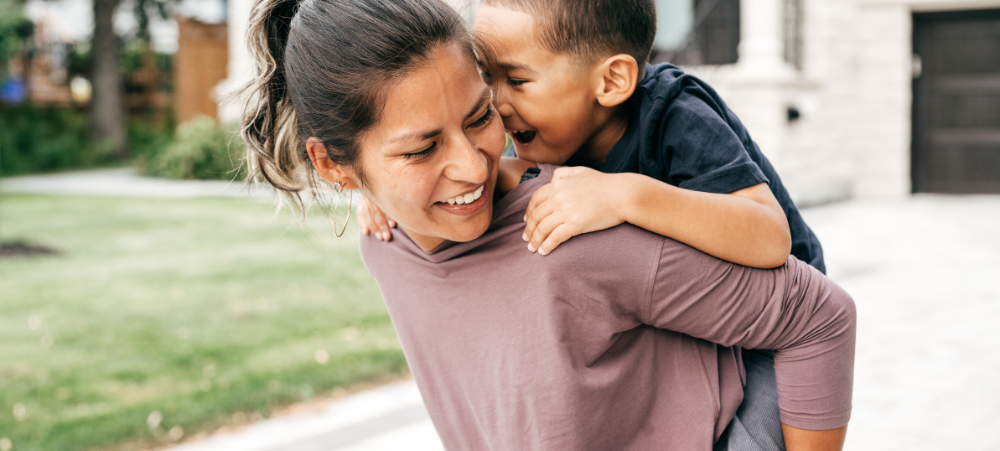In the earliest years of life, a child’s world is shaped not only by milestones like first words or first steps but also by the relationships and emotional bonds surrounding them. From grandparents and siblings to aunties and family friends, these connections create the first classroom of a child’s life—teaching love, security, identity, and resilience.
“Family is a child’s first source of safety and learning. The warmth, stories, and routines shared at home form the emotional and social foundation for everything that follows,” says Ursula Assis, Country Director at Dibber International Preschools. “In the South African context, where community and extended families are often deeply involved in a child’s upbringing, this collective care is incredibly powerful.”
Family in the South African Context
In South Africa, the spirit of ubuntu—”I am because we are”—remains central to how children are raised. It is common for a child’s earliest memories to be filled with interactions with parents and grandparents, older siblings, cousins, and neighbours, who all play a guiding role. Whether it’s a bedtime story from Ouma, learning to dance with cousins, or helping Oupa plant vegetables, each shared experience reinforces belonging, self-worth, and empathy.
These everyday interactions are far more than heart-warming moments; they are critical to development. Research shows that emotionally supportive family environments are strongly linked to higher levels of self-confidence, stronger language skills, and improved emotional regulation in young children.
Why Emotional Security Begins at Home
Children who experience unconditional love and care at home are more likely to approach the world with confidence and trust. In these emotionally responsive environments, toddlers learn that they are valued, safe, and supported—even when mistakes happen. This sense of security gives them the courage to explore, take risks, and interact with others in meaningful ways.
At Dibber, this emotional foundation is nurtured in every classroom. Educators create warm, relationship-driven environments that mirror the care and consistency children receive at home. It is this alignment between home and school that supports healthy, whole-child development.
The Role of Elders and Extended Family
In many South African households, grandparents and elders are central figures in children’s lives. Their presence provides stability and anchors children to their culture, language, and traditions. Teaching isiXhosa greetings, preparing traditional meals, or telling folk stories by candlelight—these interactions pass down wisdom while fostering identity and pride.
“Every family has a unique rhythm,” says Assis. “By recognising and respecting the role of extended family members in a child’s life, we can better support the emotional and social wellbeing of every learner.”
Learning Through Everyday Family Life
Children don’t just learn in formal lessons—they absorb lessons daily. Mealtime conversations teach vocabulary and turn-taking. Conflict resolution among siblings encourages empathy. Helping pack a lunchbox builds responsibility. These seemingly small moments are powerful cognitive, social and emotional growth opportunities.
When families model collaboration, patience, and shared responsibility, children are more likely to develop the same values. Strong family units—where members support one another and work together—create the conditions for children to thrive, both at school and beyond.
Family Partnerships at Dibber
Recognising the critical role of families, Dibber International Preschools works closely with parents and caregivers to ensure each child’s development is supported both at home and in the classroom. Educators maintain open communication with families, provide insights into children’s progress, and create opportunities for shared learning.
“Our families are our partners,” notes Assis. “Whether it’s a parent, a sibling, or a grandparent, everyone plays a part in a child’s growth journey—and we welcome them all into the learning process.”
Where Love Begins, and Learning Never Ends
At the heart of every thriving child is a web of meaningful relationships. Whether through a hug, a story, or a playful moment in the garden, the presence of family members—biological or chosen—has a lasting impact.
In the early years, love is not just felt; it is formative. And when that love is shared by a circle of caring adults, it becomes the strongest foundation for lifelong learning, confidence, and belonging.
- What Parents Should Look for in a Preschool: The Power of Play-Based Learning - December 23, 2025
- Are We Over-Scheduling Our Children? - December 16, 2025
- Five Ways to Encourage Independence and Confidence in Children with Special Needs - December 9, 2025






1 thought on “The Power of Family: Why Strong Connections Shape a Child’s Future”
family plays an important role in their kids lives.